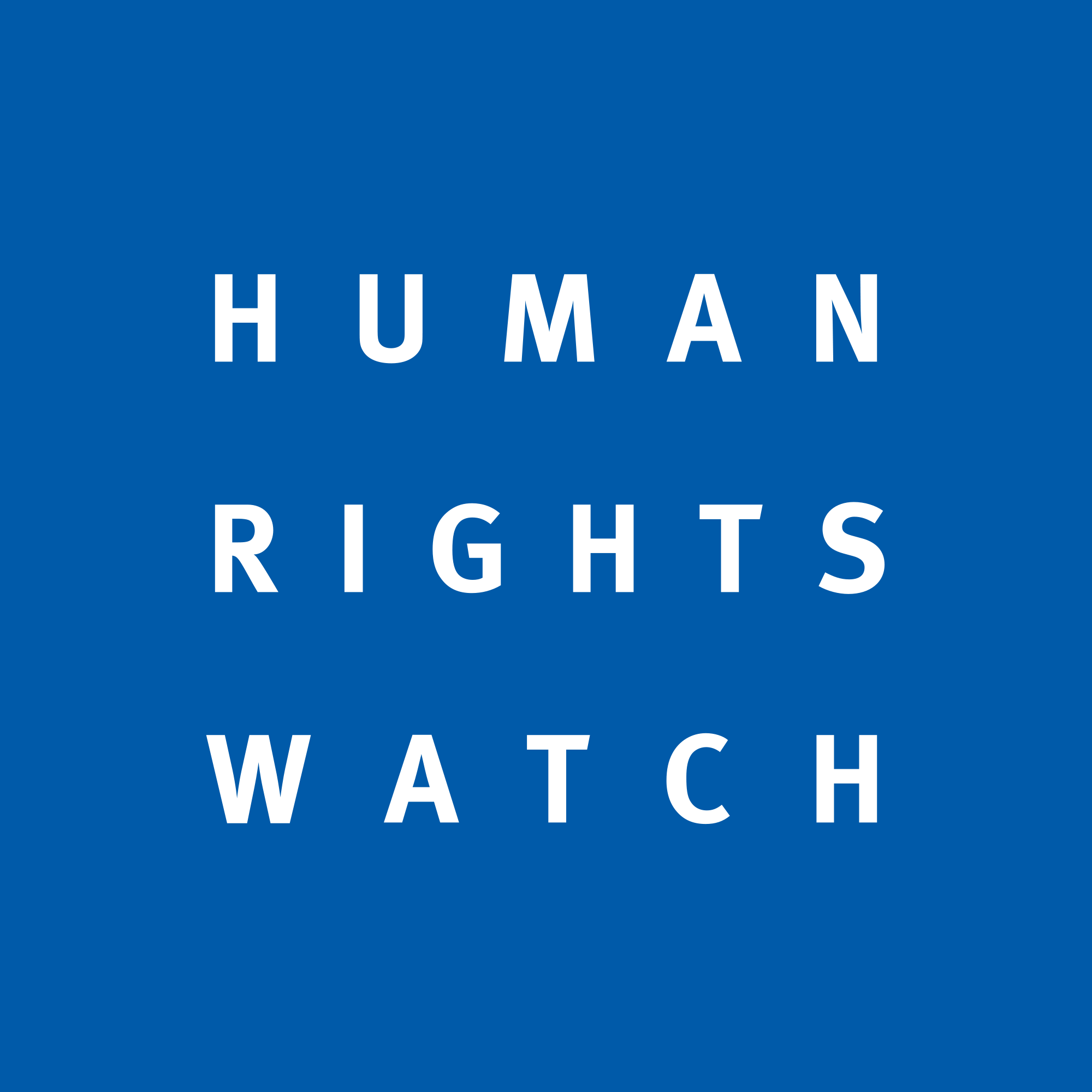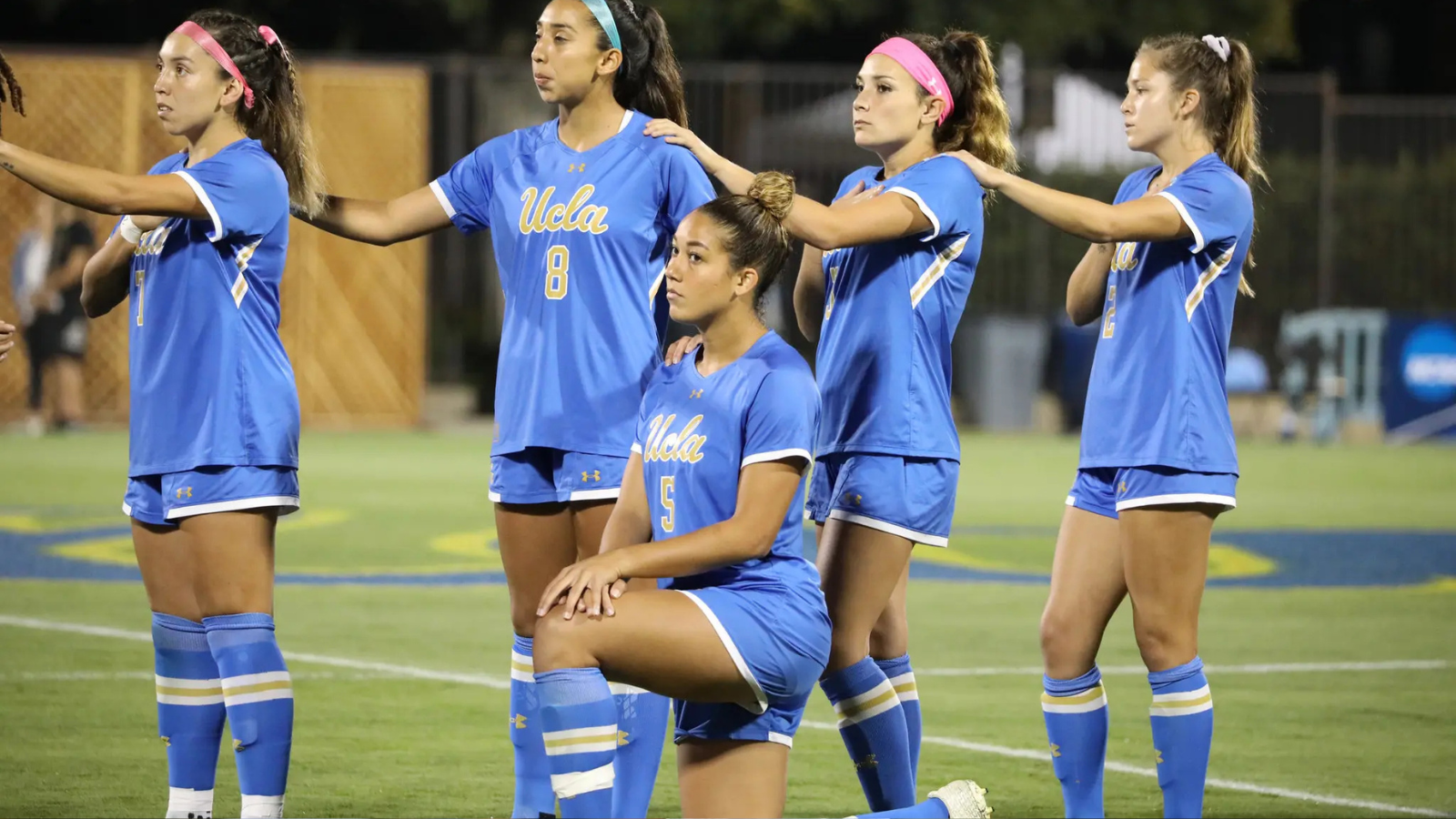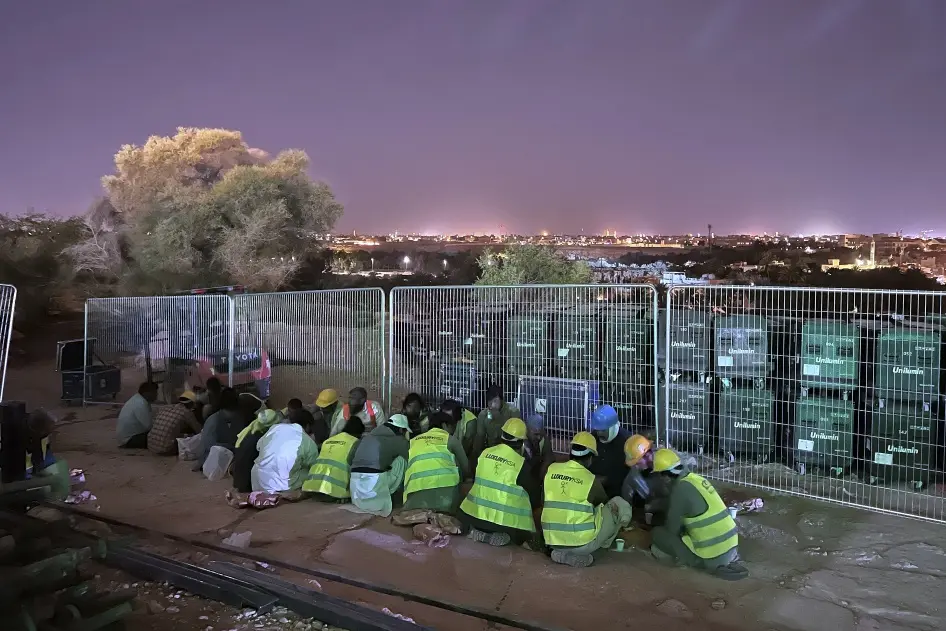Human Rights Watch Letter to FIFA
May 5, 2025
Gianni Infantino
President
Fédération Internationale de Football Association
FIFA-Strasse 20, P.O. Box 8044 Zurich, Switzerland
Subject: FIFA’s Human Rights Responsibilities in 2026 World Cup
Dear Mr. Infantino,
We write to express grave concerns about the impact of current United States immigration policies on the 2026 FIFA World Cup and the 2025 US Club World Cup. With just over one year until the World Cup opening match, immediate action is needed to address policies that directly contradict FIFA’s stated values of human rights, inclusion and global participation.
When FIFA awarded the 2026 World Cup to the “United Bid” of the United States, Canada, and Mexico, your organization celebrated this decision as one that would “unite and inspire people to create positive change through football.” Following systemic human rights violations at previous tournaments such as those in Russia and Qatar, the 2026 World Cup was intended to raise the bar with its published Human Rights Strategy. These commitments are now at serious risk.
The FIFA World Cup 2026 is projected to have as many as 6.5 million attendees traveling to or between the host countries of Canada, Mexico, and the US. An estimated 3.7 million fans are expected to attend Club World Cup matches this summer.
Since its return to office, the administration of President Donald Trump has implemented or is planning policies that fundamentally undermine the inclusive spirit of the World Cup and the non-discrimination policies under FIFA’s Statutes:
- US authorities are reportedly preparing travel restrictions and outright bans that may affect the ability of citizens from as many as 43 countries from entering the US.
- New visa practices require applicants—including athletes and tourists—to disclose their sex assigned at birth and only recognize binary sex categories, discriminating against and erasing transgender identities and leaving gender non-binary individuals without appropriate options.
- The Trump administration has detained international students legally in the US for study under obscure provisions of US law that the administration argues allows them to remove anyone whose presence is deemed to “compromise a compelling United States foreign policy interest.” The administration has also conducted seemingly arbitrary visa revocations largely reversed upon appeal to the courts.
- The US government, Department of Homeland Security, and Immigration and Customs Enforcement have also wrongfully deported third country nationals, legal US residents and those seeking asylum, to countries including El Salvador, Panama, Costa Rica and Rwanda.
- The administration has blocked refugees who were vetted and cleared to arrive in the US in order to be resettled and instead diverted them into immigration detention. Immigration-related US executive orders are rejecting rights of refugees and targeting marginalized populations, both in the US and abroad.
These policies would directly affect the World Cup in ways that contravene FIFA’s human rights responsibilities. In 2016, FIFA adopted the United Nations Guiding Principles on Business and Human Rights (UNGPs), and revised its statutes to reflect the principles. The FIFA Statutes (Article 3) state that, “FIFA is committed to respecting all internationally recognized human rights and shall strive to promote the protection of these rights.” FIFA’s Human Rights Policy (Article 4) states that “FIFA will strive to go beyond its responsibility to respect human rights, as enshrined in the UNGPs, by taking measures to promote the protection of human rights and positively contribute to their enjoyment, especially where it is able to apply effective leverage to help increase said enjoyment or where this relates to strengthening human rights in or through football.”
- If implemented, the proposed visa bans would effectively bar teams and fans from previous World Cups such as Iran and Cameroon from competing, with neither players nor their families able to secure visas.
- For many other countries not on the proposed ban/restrictions list, prohibitively long visa wait times may make it extremely difficult for people to attend. Players and fans from several countries would theoretically have already had to apply in order to attend next year’s games: visa wait times are estimated to be 700 days in Colombia, 560 days in Turkey, and 332 days in Morocco.
- Even with proper visa documentation and tickets to attend World Cup events, players and fans face potential detention, interrogation, and humiliation at US borders, including being screened for social media posts or even denied entry for expressing opinions on Trump administration policies in private messages. This would be a violation of the right to free expression.
- Transgender and non-binary people applying to travel to the games may be stigmatized by new visa practices that require them to disclose their sex assigned at birth, potentially subjecting them to discrimination, contravening FIFA’s non-discrimination policies and Statutes (Article 4).
- Fans or players who expect to engage in the time-honored tradition of using football to raise awareness about human rights may encounter chilling limits on free speech and peaceful assembly.
FIFA’s Human Rights Policy outlines the responsibility to identify and address adverse human rights impacts of its operations, including taking adequate measures to prevent and mitigate human rights abuses. Article 7 of FIFA’s Human Rights Policy states: “Where the national context risks undermining FIFA’s ability to ensure respect for internationally recognised human rights, FIFA will constructively engage with the relevant authorities and other stakeholders and make every effort to uphold its international human rights responsibilities.”
As FIFA President, you have both the responsibility and authority to address the repudiation of human rights commitments at the 2026 World Cup.
Human Rights Watch requests your response to the following questions:
- What actions is FIFA taking so that the US government will permit players, fans and journalists from around the world to safely attend the 2026 World Cup in the US?
- What actions does FIFA plan to take in the event any players, fans or journalists are subject to discrimination, wrongful interrogation or arbitrary arrest while in the US?
- What steps is FIFA taking with the US government and the White House Task Force on The FIFA World Cup 2026 chaired by President Trump to advocate for changes in policies to align with international human rights, FIFA’s Statutes, and FIFA’s Human Rights Policy?
FIFA should publicly acknowledge the threat US immigration policies pose to the tournament’s integrity and urge the US government to ensure that all qualified teams, support staff, media, and fans will have equal access to enter the US regardless of nationality, religion, or opinion. FIFA should also establish clear benchmarks and timelines for US immigration policy changes needed to ensure respect for the rights of players, fans, and other participants in the World Cup and be prepared to reconsider the hosting decision if such guarantees cannot be secured.
In order for us to reflect your responses in our upcoming reporting, we request that you respond to us by May 19.
Regards,
Minky Worden
Director, Global Initiatives
Human Rights Watch





